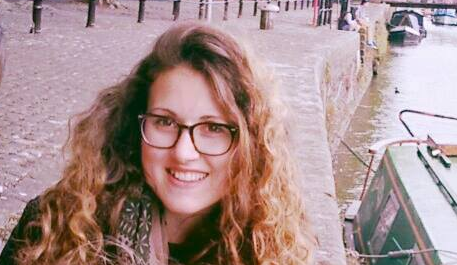Cecilia Vona
Interview by Carey Sargent, EPFL, NCCR MARVEL
What was your Master’s thesis project about?
The project was about metal halide perovskites, which in the last years have created a lot of interest in the scientific community, since they are promising material for next generation solar cells. One of their main problems is instability however. In particular, these materials exist in different crystalline phases with different electronic properties and some of them are not suitable for solar cell applications. To study phenomena such as the phase transition between different crystalline phases, classical molecular dynamics is required. To use this method, a force field able to reproduce the main features of such complex materials is necessary. During the project, we developed a force field for one of the most studied metal halide perovskite compounds.

What was the best part about taking part in this project at EPFL?
The fellowship provided me with the opportunity to participate in a relevant scientific project in an especially active and motivating environment. I really appreciated the seminars, meeting and retreats organized by MARVEL during my stay at the EPFL. These events were a good space for young students like me, where we could develop our own interests and curiosity, and could start a network of young scientists. I believe this experience will give me an advantage during my PhD.
Have you always been interested in physics?
Not really. Since I was a child I really liked logic games and math, but I did not know what physics was. I started to be interested in physics in the last years of high school, thanks to my physics teacher. When she explained the Heisenberg uncertainty principle to us, I saw a light in her eyes and I became fascinated by this discipline.
The common thinking is that women are good in disciplines like literature and history and men are good in math and science. For this reason, I think that young girls do not even question the possibility of liking science.
Why are there fewer women than men in scientific disciplines?
I think it is mainly due to a conceptual bias in society. The common thinking is that women are good in disciplines like literature and history and men are good in math and science. For this reason, I think that young girls do not even question the possibility of liking science. This is reflected in the number of women that pursue scientific university studies, and becomes even worse if we look at the number of women that have leading positions within academia, though this is generally true for leading positions in any field.
I think that even by taking small steps, society in general is starting to change. However, a problem that remains in academia is that if you are a woman and you want to start a family before having a permanent position, you are going to face a strong disadvantage and might seriously risk your career. And usually, the permanent positions come so late, that waiting for one might not be an option.
Do you have any advice for other young women interested in similar fields?
I would say that they should not be scared of what other people expect from them and just do what they like. Sometimes they will be subjected to unfair judgment by their peers and supervisors, but they should be proud of what they have achieved. We know that our achievements come from the effort we invested in it.
